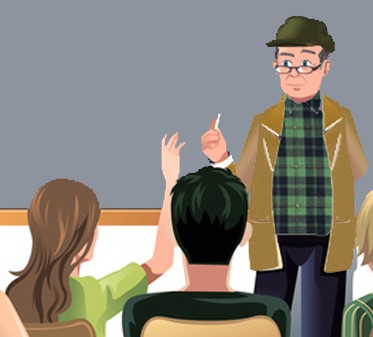Art & Ethics in the Internet Age
by Matt Kizer

Among many things, I am a Professor at a beautiful little university, in the White Mountains of New Hampshire.
One of the classes I teach is about dealing with technology in our profession. We cover a lot in there. One thing we return to over and over, though, is the importance of having respect for the work of other artists. This comes up most often when talking about images online. Many, many people see images online as free for the taking, or, needing just a little modification to make it into “original work.”

I counter this sometimes by changing the medium. “So if I change a few words of a play you wrote, I can produce it without paying you, right? Because now it’s my own.” Again, no. No, you cannot.
Whether you are talking about a photo, or a graphic, or a play, or a piece of music, someone out there worked to create that, and just thinking about using it, without crediting them or getting permission, should make you squirm. These other artists out there, no matter what their medium, are your peers, and your colleagues.
Here’s a little back-information, before I get to the heart of this article. I am often the faculty go-to-guy for computer stuff in my department. I make online-tools for our majors: production calendars, program bios, contact lists, you name it, all kept online so that everyone can get to them.
Early on, when I started doing this, it was all a bit messy. After a while, I put it together into one clickable image of a callboard. Almost everything our majors need is right there. I even included a little note tacked to the board, that says, “Hey, Kizer!” Students can click on that to talk about their technical assignments for shows.
It’s especially cool because I built it to look just like the real callboard, in our actual student lounge.

This has been in place for probably five or six years now. It’s overdue for an update, though I have a project or two underway towards that end.
In the meantime, though, it has become a very familiar, friendly image for all of the people who have passed through our program in that time.
Now, please, mentally jump in time to February 6, 2015.
I received a message from one of our alumni. It was a screen-grab of Facebook, on her phone.
Here it is:

I was shocked. In case you think I am naive (Gee, Kizer, people do this all the time!), let me explain why I was shocked. I am not shocked because someone stole an image of mine from online and used it.
- I am shocked because it was Playbill that did this.
- Playbill is a national magazine that focuses on Artists and their work.
- Playbill spotlights individual artists.
- I would expect them, over most other outlets, to be most respectful of other artists’ work.
- Playbill used this image as their own callboard, to make a call for people in Arts Administration Positions.
I can understand how this happened. Playbill is a big entity. A lot of people probably work on their Facebook feed (which is where this came from). Someone over there probably didn’t think twice about it. “This could use a nice image of a callboard. Look on Google.”

The problem is, This is not a personal Facebook page. This is not private, visible only to 435 friends. This is Playbill’s official Facebook page, with 122,957 (as of this writing) followers.
 My greatest shock, though, is that whoever did this, apparently does not realize that this is a really small industry. It took three hours for the first person to copy this to me. My name is in this image.
My greatest shock, though, is that whoever did this, apparently does not realize that this is a really small industry. It took three hours for the first person to copy this to me. My name is in this image.
I was not inclined to do any more at the time than write this article. It’s a good lesson in Internet-age ethics.
However, a few days later, the same image came through their Facebook feed once again.
This time, I sent them a polite email asking them not to use the image:
Dear Mr. Gans:Lately, Playbill has been using the image included below in its Facebook Feed. This image is the property of Plymouth State University. It was created by me, as a part pf our website. There was never any request to use this.I have been forwarded this over and over by people who recognize it from our site. Playbill is setting a terrible example of how to respect the work of artists when it appropriates work in this manner.Please either stop using this image, or credit this image to Plymouth State University.Sincerely,
Matt Kizer
Professor
Theatre Design and Technology
Department of Music, Theatre, and Dance
Plymouth State University
To their credit, Playbill got back to me very quickly:
Hi Matt-Andrew Gans forwarded me your email.First, thank you for alerting us to this mistake—I have made our staff aware of the error and we are in the process of pulling down your image from our Facebook page as we speak.Second, please accept my apology on behalf of the staff at Playbill. We usually take painstaking efforts to credit and promote the work done by others, and in this case we failed. I appreciate your allowing us to correct an error so we can do better next time!
My sincerest thanks,Blake—Blake Ross
I was kind of hoping they would credit us, instead of deleting, but I am sure this was the more efficient solution for them.
A big thank you to Playbill.
